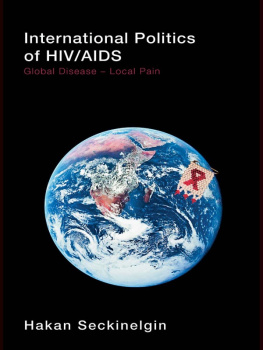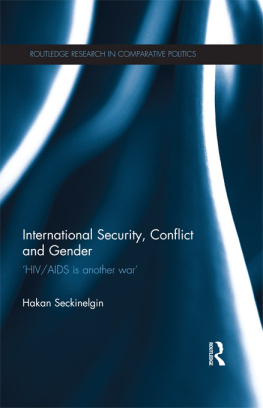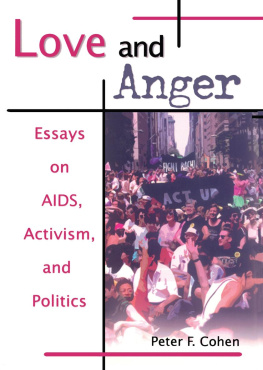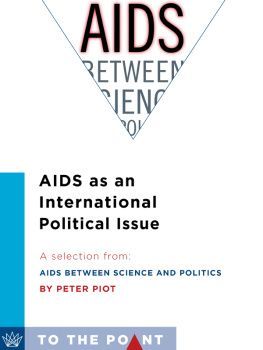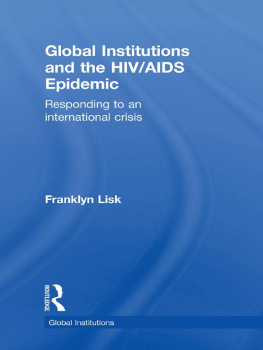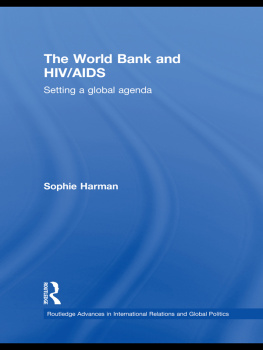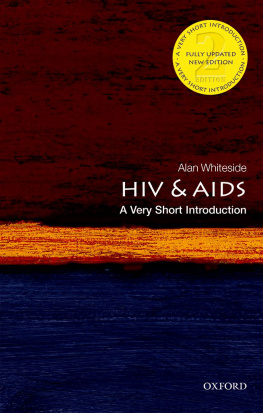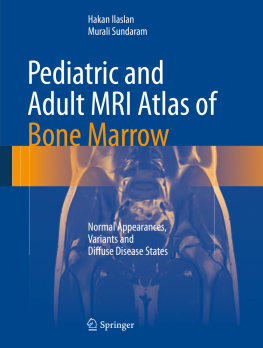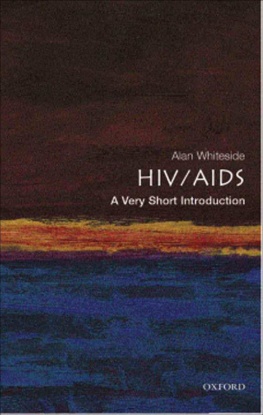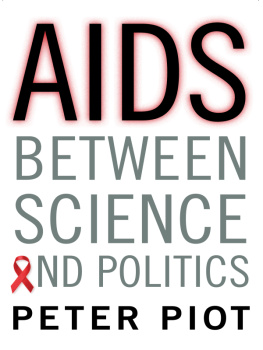International Politics of HIV/AIDS
The HIV/AIDS epidemic is one of the most catastrophic phenomena that has impacted and will continue to impact peoples lives in Sub-Saharan Africa, influencing all aspects of society. Today around 29 million people are living with the disease in the region.
This book examines the global governance of the HIV/AIDS epidemic, interrogating the role of this international system and global discourse on HIV/AIDS interventions. The geographical focus is Sub-Saharan Africa since the region has been at the forefront of these interventions. There is a need to understand the relationship between the international political environment and the impact of resulting policies on HIV/AIDS in the context of peoples lives. The book points out a certain disjuncture between the governance structures and the way people experience the disease in their everyday lives. Although the structure allows people to emerge as policy relevant target groups and beneficiaries, the articulation of needs and design of policy interventions tends to reflect international priorities rather than peoples thinking on the problem. In other words, it is argued that, while the international interventions highlight the importance attributed to the HIV/ AIDS problem, the nature of the system does not allow interventions to be far reaching and sustainable.
Offering a critical contribution to the understanding of the problems in HIV/AIDS in Sub-Saharan Africa, this book will be invaluable to students and researchers of health, international politics and development.
Hakan Seckinelgin is a Lecturer in International Social Policy at the Department of Social Policy, London School of Economics and Political Science. His research interests include international organisations, social policy, civil society and HIV/AIDS in Sub-Saharan Africa.
International Politics of HIV/AIDS
Global disease local pain
Hakan Seckinelgin
First published 2008
by Routledge
2 Park Square, Milton Park, Abingdon, Oxon OX14 4RN
Simultaneously published in the USA and Canada
by Routledge
270 Madison Ave, New York, NY 10016
Routledge is an imprint of the Taylor & Francis Group, an informa business
This edition published in the Taylor & Francis e-Library, 2007.
To purchase your own copy of this or any of Taylor & Francis or Routledges collection of thousands of eBooks please go to www.eBookstore.tandf.co.uk.
2008 Hakan Seckinelgin
All rights reserved. No part of this book may be reprinted or reproduced or utilized in any form or by any electronic, mechanical, or other means, now known or hereafter invented, including photocopying and recording, or in any information storage or retrieval system, without permission in writing from the publishers.
British Library Cataloguing in Publication Data
A catalogue record for this book is available from the British Library
Library of Congress Cataloging in Publication Data
Seckinelgin, Hakan, 1969
International politics of HIV/AIDS : global diseaselocal pain / Hakan Seckinelgin.
p. ; cm.
Includes bibliographical references and index.
ISBN-13: 9780415413831 (hardback: alk. paper)
ISBN-10: 0415413834 (hardback: alk. paper)
ISBN-13: 9780415413848 (pbk: alk. paper)
ISBN-10: 0415413842 (pbk: alk. paper)
1. AIDS (DiseaseAfrica, Sub-Saharan. 2. AIDS (Disease) International cooperation. I. Title.
[DNLM: 1. HIV InfectionsAfrica South of the Sahara. 2. Health PolicyAfrica South of the Sahara. 3. International AgenciesAfrica South of the Sahara. 4. International CooperationAfrica South of the Sahara. 5. Policy MakingAfrica South of the Sahara. WC 503 S444i 2007]
RA643.86.A357S43 2007
362.196979200967dc22
2007000377
ISBN 0-203-94615-4 Master e-book ISBN
ISBN13: 9780415413831 (hbk)
ISBN13: 9780415413848 (pbk)
ISBN13: 9780203946152 (ebk)
ISBN10: 0415413834 (hbk)
ISBN10: 0415413842 (pbk)
ISBN10: 0203946154 (ebk)
To Damien
Acknowledgements
It would have been impossible to write this book without the contribution of people living with HIV/AIDS, within the context of the disease and those people who are trying to do their best to help them. I am deeply indebted to a large number of people, who wanted to remain anonymous, in a number of countries who were happy to share their lives experiences with me. Time and again I was humbled by the willingness of people to talk and discuss their conditions independent of the great problems they face on a daily basis. I was regularly told No problem, well talk to you. At least you can tell people what we think so that they can understand what our lives are like. Also, thanks are due to those who work in international organisations and nongovernmental organisations. The book would have been incomplete without their openness and interest in discussing their work with me. I also thank the following for discussing some of the ideas which are developed in the book with me: Jacquie Rubanga, James Deane, Laura Leonardi, Luciana Bassini, Pierre Claver, Betty Nabinye, Deo Nyanzi, Warren Nyamugasira, Moses Matou, Rebecca Mukasa, Stephen Ochieng, Joseph Semujju, Brigitte Quenum, Shalita Steven, John Rwomushana, Shirley Baker, Prisca B. Chitomfuna, Alison Cook, Margaret Kalane, Andrew Kiptoo, Miyanda Kuunda, Mariola Mierzejewska, Valencia Mogegeh, Malebogo Monguakekse, Karabo Mongwaketse, David Mugo, David Mukuyamba, Kennedy Mupeli, Bawani Mutshewa, Simon Mutonyi, David Chizao Ngele, Vuyisele Otukile, Divya Rajaraman, Michelle Marian, Schaan, Exhilda Siakanomba, Tumie Thahane, Walter, Otis Tamfumaneyi and Maryla Wiesniewski.
The research leading to this book was supported through various sources. The initial field research was supported within the Global Civil Society Year (GCSY) book project with funding from the Rockefeller Brothers Foundation. I thank Mary Kaldor and Marlies Glasius for their encouragement at the time and continued support for the research through the years. The intellectual forum that they nurtured around the GCSY has provided an important forum. LSEs annual staff research/travel grants were used for large parts of the field research. I thank also the Suntory and Toyota International Centres for Economic and Related Disciplines (STICERD) at LSE for their Small Grant in spring 2005 that facilitated a part of the field research.
Initial ideas forming some of the chapters were presented in a number of workshops organised by BISA Poststructural Politics Group. I thank the organisers Jenny Edkins, Maya Zehfuss and Louiza Odysseos for these opportunities and all the participants for their helpful comments. I was fortunate to take part in the LSE Philosophy Departments Ph.D. Research Methods Seminar in the 2006 summer term. I am grateful to Nancy Cartwright for inviting me to jointly organise the seminar series on Evidence and HIV/AIDS. Chapters 4 and 5 were greatly improved as a result of many discussions we had in the group. I also thank the group members Jacob Bjorheim, Maria-Elena di Bucchianico, Damien Fennell, Jeremy Howick, Sara James, Nisrine Monsour and Fernando Morett. The encouragement and support of colleagues and friends in the department of Social Policy, LSE, was very important to sustain the research over a long period of time. Particularly I thank Gill Bridge, David Lewis, Eileen Munro, Wendy Sigle-Rushton, Peter Townsend and Gail Wilson. Also, I have benefited greatly from discussing many of the ideas with successive cohorts of students enrolled in the departments master degrees in Social Policy Planning in Developing Countries and NGO Management over the last six years. They have always been very enthusiastic and engaging. Many of them have become friends. Particularly I thank Leanne Bayer, Fiona Wilson, Marissa (Wilkins) Hoffman, Hulda Ouma, Jo Nicholls, Rachel Parker, Lynda DeGuire, Nicola Cullen, Tisha Wheeler and Gavan OSullivan. I would also like to thank Leanne Bayer for her warm welcome to Burundi and for the long discussions we had on many aspects of developmental life and work.


